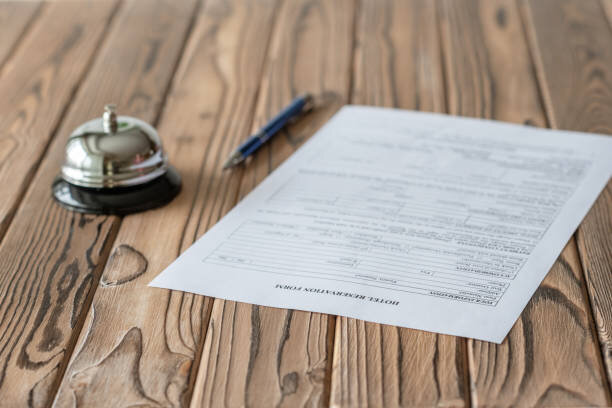
Tax Consequences When Selling a House I Inherited in Philadelphia. Inheriting a house is both a blessing and a challenge. As you embark on this journey, your mind is likely flooded with questions, concerns, and the desire for clarity. You’re keen on understanding the specific property tax consequences when selling an inherited house in Philadelphia. The words buzzing in your mind include Pennsylvania inheritance and estate tax, inheritance tax, and capital gains taxes. You’re on a quest for knowledge, looking to navigate the intricacies of these taxes and discover strategies to minimize the financial impact. In this blog, we are your guides, aiming to provide you with insights and advice on these matters.
Selling an Inherited Property in Pennsylvania
Selling an inherited property is often a bittersweet experience. It’s crucial to comprehend the Pennsylvania inheritance tax and how it factors into the equation. This tax is not a flat rate and varies depending on your relationship with the now deceased person. Let’s delve into the specifics of the inheritance tax rates:

- 0%: Transfers to a surviving spouse or a parent from a child aged 21 or younger are exempt from the tax.
- 4.5%: Transfers to direct descendants and lineal heirs are subject to this rate.
- 12%: If you’re inheriting from a sibling, the tax rate is 12%.
- 15%: For transfers to other heirs, except charitable organizations and exempt institutions.
Understanding these rates is critical because they directly impact the tax liability on the inherited property. For example, if you’re inheriting an inherited house from a parent, you may not have to pay taxes or any inheritance tax. However, inheriting a house from a sibling could result in a 12% tax on the taxable total value of the inherited house and assets.
Minimizing the Pennsylvania Inheritance Tax
While paying the taxes might initially seem daunting, certain laws are legitimate to reduce or eliminate this tax. For instance, assets bequeathed to a surviving spouse are completely exempt from the inheritance tax. Careful planning and professional advice can uncover legal pathways to decrease or eliminate your inheritance tax burden.
Federal Inheritance Tax Implications
Beyond state-level inheritance taxes, beneficiaries need to be aware of the potential federal inheritance tax implications. Although the federal government doesn’t impose a specific inheritance tax on beneficiaries, the value of the inherited property can affect your federal income tax.
The federal government adopts a stepped-up basis system, adjusting the property’s value to its fair market value at the time of the estate or previous owner’s death. This adjustment can be advantageous as it may reduce the amount of capital gains tax you owe when selling the property.

Capital Gains Taxes
Capital gains tax is a consideration when selling an inherited property, especially if the property has appreciated over the years. When a stepped-up basis is applicable, your capital gains tax obligation is determined by the variance between the selling price and the fair market value of the real property at the time of the previous owner’s passing. However, if you sell after the property’s value has decreased, you might incur capital on taxes on losses.
Calculating Capital Gains Tax
Calculating capital gains tax involves determining the property’s adjusted basis. This includes the fair market value at the time of inheritance, additional costs such as improvements, and selling expenses. The difference between this adjusted basis and the selling price is what’s subject to capital gains tax.
Strategies to Minimize Capital Gains Tax
Minimizing capital gains tax is a key objective for most individuals selling inherited property. One approach is to hold onto the property for at least a year to qualify for long-term capital gain rates, which are typically more favorable than short-term capital gain rates. This approach can significantly reduce your capital gain tax liability, allowing you to retain more of the sale proceeds.

Another strategy involves making necessary repairs or improvements to the property. Enhancing the property’s condition and value can increase its basis, effectively reducing the taxable gain when you sell it. This strategy is often used to maximize profits while minimizing the tax burden.
Selling Your Inherited Property
When it comes to selling your inherited home or property, you have various options to consider. You can opt for the traditional route to sell, which involves preparing the house or property for sale, hiring a real estate agent, and listing it on the open market. While this approach to selling may potentially yield a higher sale price, it comes with several drawbacks, such as time consumption and expenses like realtor commissions and closing costs.
Another option is to sell the property to individual buyers. This method usually involves negotiations, inspections, and a lengthy closing process. While it may offer more control over the sale, it can also be cumbersome and result in various expenses.

For those who desire a quick and hassle-free sale, there’s the option of working with reputable real estate investment companies. These companies specialize in buying inherited properties as-is, relieving you of the responsibility of making repairs or improvements. The sales process is efficient and can be completed in a matter of weeks, providing you with a fair cash offer for your inherited property.
Check out our blog: I Inherited a House, What To Do? – Should I Rent or Sell in Philadelphia?
Pennsylvania Inheritance Tax Planning

As you navigate the complexities of selling an inherited property in Philadelphia, it’s essential to be well-informed about the inheritance tax, federal inheritance tax, and capital gains tax. With strategic planning and professional guidance, you can minimize your tax liabilities while maximizing the proceeds from the sale. Additionally, exploring various selling options, such as working with real estate investment companies, can help you find the best path forward that aligns with your specific needs.
In conclusion, being well-informed is your greatest asset when making decisions about your inherited property. It enables you to secure your financial well-being and make choices about inherited property laws and tax laws that best serve your circumstances.
Pennsylvania Inheritance Tax: A Deeper Dive
To address your curiosity about inheritance tax, let’s delve deeper into how this tax works and the factors that can influence your estate tax and other tax obligations here. This understanding is vital in your journey to navigate the complex landscape of selling an inherited property in Pennsylvania.
The inheritance tax paid here is assessed based on the value of the property you inherit from a deceased individual. It’s important to note that the estate tax paid here is distinct from paying the federal estate tax, which applies to the entire estate and is paid by the estate itself.
How Is the Pennsylvania Inheritance Tax Calculated?
The assessment of your inheritance tax relies predominantly on how your relationship with the deceased is categorized. As mentioned earlier, the tax rates vary based on the following categories:
- 0%: Transfers to a surviving spouse or parents from a child aged 21 or younger.
- 4.5%: Transfers to direct descendants and lineal heirs.
- 12%: When inheriting from siblings.
- 15%: Transfers to other heirs, excluding charitable organizations and exempt institutions.

Now, let’s break down how this works with some practical examples:
Scenario 1: Transferring to a Surviving Spouse
If you’re inheriting property from your spouse, you’re in a fortunate position. Pennsylvania does not impose any inheritance tax on such transfers. This means you won’t have to part with a portion of your inheritance to pay this tax. However, in such cases, it’s essential to keep the appropriate documentation and records to confirm your spousal relationship.

Scenario 2: Inheriting as a Direct Descendant
When you inherit property as a direct descendant or lineal heir, you’ll face a 4.5% tax rate. This category typically includes children inheriting from their parents. Consider if the fair market value of the inherited property amounts to $300,000. In this case, you would be subject to an inheritance tax of $13,500 (4.5% of $300,000).

Scenario 3: Inheriting from Siblings
If you’re inheriting property from a sibling, the tax rate jumps to 12%. So, if the fair market value of the house and the inherited property is $200,000, you would owe an inheritance tax of $24,000 (12% of $200,000).

Scenario 4: Transfers to Other Heirs
Transfers of money to other heirs, excluding charitable organizations and exempt institutions, are taxed at a rate of 15%. Let’s say you’re inheriting property from a distant relative, and its fair market value is $150,000. This would result in an inheritance tax of $22,500 (15% of $150,000).

In essence, the closer your relationship to the deceased, the lower your inheritance tax rate. However, there are still strategies to legally minimize this tax and protect your inheritance.
Strategies for Pennsylvania Inheritance Tax Mitigation

One way to mitigate your inheritance tax liability upon death is by gifting assets while you’re alive. This approach can involve gradually transferring assets to your heirs, allowing them to receive your wealth without incurring significant inheritance tax. However, it’s crucial to adhere to the gifting limits set by the law and the IRS to avoid gift tax.
Additionally, establishing trusts can be an effective strategy for estate tax planning. Irrevocable life insurance trusts, charitable remainder trusts, and family limited partnerships are examples of instruments that can be used to protect assets and beneficiaries from inheritance tax.
Seeking professional guidance from estate planning attorneys and tax professionals is highly recommended when implementing these strategies to ensure they align with the law and serve your best interests.
Planning Your Inheritance Wisely
In conclusion, the inheritance tax is a crucial consideration when selling an inherited tangible personal property located in Philadelphia. Understanding the tax rates and exploring strategies to mitigate the tax burden are essential steps in preserving your inheritance. By delving deeper into the nuances of this tax, you’re better equipped to make well-informed decisions about tangible personal property and secure your financial future. Whether you’re a direct descendant or inheriting an inherited home from a sibling, knowing how the inheritance tax works is the first step toward financial planning and successful property sales.
Optimizing Inheritance Planning
Exploring the nuances of Pennsylvania inheritance tax is the first step toward wise financial planning and a successful property sale. To read more about effective pricing for your inherited Philadelphia property, explore our comprehensive guide: How to Price Your Inherited Home in Philadelphia for Sale.


Ready for the next step?
Complete our online form to receive a fair cash offer for your inherited property. At Recommended Home Buyers, we buy houses in Philadelphia and our cash home buyers pay cash as-is while ensuring a smooth selling process.
